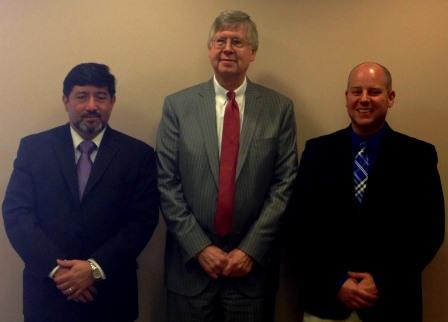There’s something particularly disconcerting about watching a terrorist attack unfold in the heart of Europe from the vantage point of the Middle East.
The perpetrators of the Brussels attacks, recent experience strongly suggests, will turn out to be jihadi terrorists, and, in fact, the Islamic State has taken responsibility. They have struck again in Belgium, in the capital of the European Union, killing dozens and wounding scores more, sending shivers of insecurity across Europe.
Brussels is in lockdown; passengers who were en route to Belgium are being diverted to other points in Europe, and the sense of anxiety and vulnerability for people on the continent and even in the U.S. has climbed once again.
A moment ago, someone back in the U.S., nervous about my travels, told me, “I can’t wait for you to be out of the Middle East.” But I’m on my way to Europe, which seems more dangerous than where I am, in the United Arab Emirates.
Ironically, just Monday, I was listening to a prominent European leader and human rights activist prod this country to allow its people more freedom, more dissent. Mary Robinson, the former U.N. high commissioner for human rights, was telling the Emirates that they cannot fully achieve their lofty aspirations without allowing their citizens the freedom to disagree with government policies, the freedom to criticize their government.
A similar message was delivered the previous day by Amal Clooney, the human rights attorney who became an international superstar when she married George Clooney. She told her audience at a government communications forum that a tweet criticizing the government should be answered with another tweet, not with jail.
And yet, the bombs went off in Belgium, where all these freedoms are available.
The moment is reminiscent above all of the November attacks in Paris, carried out by European-born radical Islamists, most of them children of North African immigrants, who grew up in the Arab districts of Paris and Brussels, where they became indoctrinated in jihad and traveled to Syria to hone their terrorist skills.
Extremists have found that democratic societies and their freedoms make for a most agreeable base of operations. In the Middle East, life is much more difficult for them. They are under closer scrutiny, and the authorities feel much less inclined to worry about their rights or the rights of anyone who might be in the process of becoming a dangerous radical.
The net sweeps actual and potential troublemakers, along with other critics.
If I look up to my television right now, I see terrible images from Brussels, people running in a smoke-filled, bombed-out airport hall. If I look out my window, I see a peaceful lagoon, people strolling along the waterfront.
The contrast does not justify, but it helps explain why Arab governments are reluctant to loosen the reins, and it helps shed light on why right-wing politicians in Europe are making huge strides.
France’s Marine LePen called for immediately closing the border between France and Belgium and said “laxisme,” excessive tolerance, has gone on too long — and in the U.S., Donald Trump called today’s tragedy “just the beginning.” This is an enormous and pivotal test for the West. The answer to terrorism cannot be abandoning the individual freedoms of an open society, even if that is the temptation.
When people feel unsafe, they are more willing to relinquish their freedoms.
As it happens, I just had a conversation here with an Afghan woman who was telling me how the Afghan people welcomed the dreadful Taliban to power because they yearned for peace and security. That is in no way to say that a Taliban-style regime is about to go into place in Belgium or France or the U.S.; of course not. But insecurity makes individual freedom a lower priority. That is understandable. And, in fact, some safety measures that would be intolerable in times of calm are acceptable in order to restore security. But there is a limit, and it’s difficult to draw that moving line.
The most fundamental duty of a government is to make its people safe. But democratic countries have to do it with one hand tied behind their backs. They must do it that way. Otherwise, they lose themselves.
The challenge for Europe today and for other free societies is to demonstrate that they can provide security for their people without sacrificing freedoms, without losing their souls. They must show that a system that allows dissent and competing ideas is, in fact, the one that produces thriving individuals, productive communities, prosperity and well-being.
Modern, democratic countries must find a way to uproot and destroy the violent extremist groups that take advantage of Western freedom and use it to attack open societies. They must reinforce the belief that, whatever its weaknesses, there is no better system than one that allows everyone to think and debate and criticize, and that there is a way to do that without sacrificing physical safety.
As if Western security officials did not have enough to worry about, it is up to them to provide the evidence and confirm that a system governed by democracy and defending individual freedoms remains the best system known to man.



